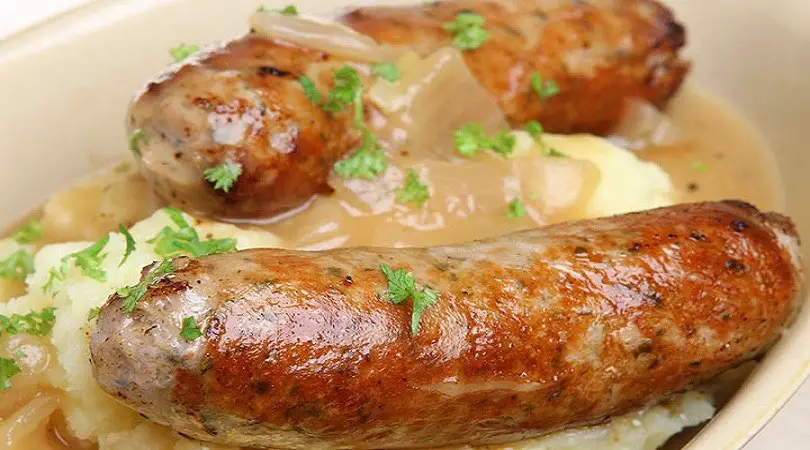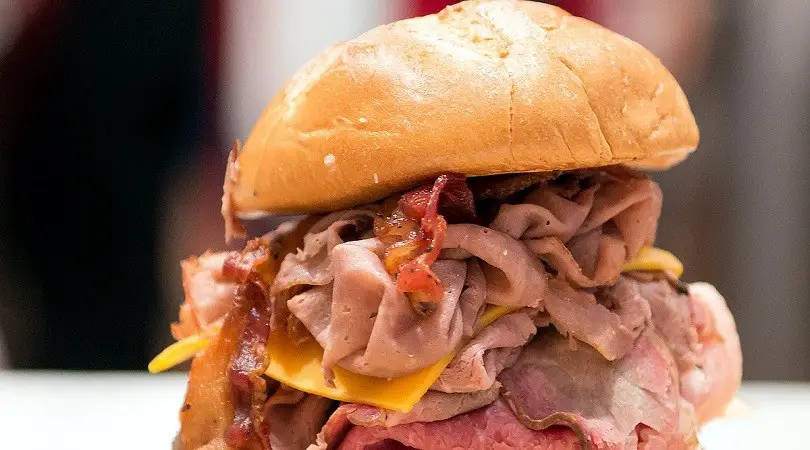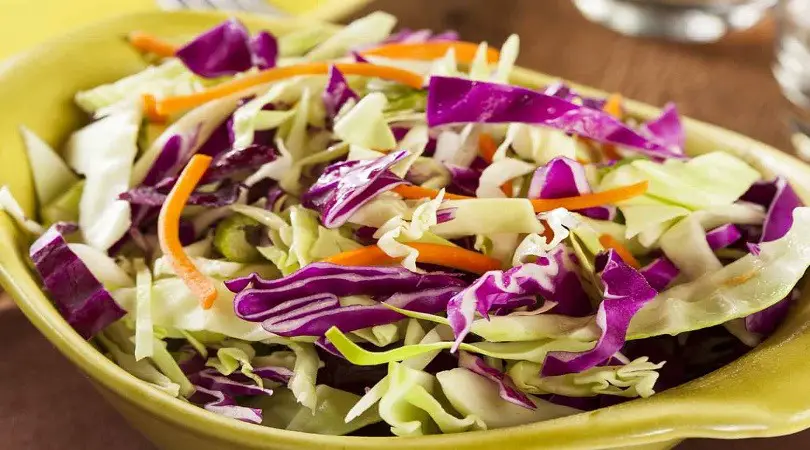Last Updated on January 6, 2025
Yes, you can eat breakfast sausage while pregnant, but it’s important to choose varieties that are fully cooked. Breakfast sausage should be heated to an internal temperature of 160°f to kill any bacteria or parasites that may be present.
Pregnant women are more susceptible to foodborne illnesses, so it’s important to take precautions when consuming meat products. Now let’s explore some guidelines for enjoying breakfast sausage safely during pregnancy. Pregnancy is a time when women need to be extra cautious about their diet to ensure the health and well-being of both themselves and their growing babies.
Many women may wonder if it is safe to consume breakfast sausage during pregnancy. The good news is that yes, you can enjoy breakfast sausage while pregnant, but it is essential to make informed choices and take precautions to minimize any potential risks. We will discuss the guidelines for eating breakfast sausage safely during pregnancy, including cooking methods, proper storage, and considerations for certain health conditions. By following these recommendations, you can savor your favorite breakfast sausage without any worries during this special time.
Related: Can Pregnant Women Eat Cheetos?
Understanding The Risks Associated With Breakfast Sausage During Pregnancy
**understanding the risks associated with breakfast sausage during pregnancy**
Breakfast sausage can be a tempting choice for many pregnant women, especially when cravings kick in. However, it is important to be aware of the potential risks associated with consuming breakfast sausage during pregnancy. In this section, we will explore the concerns surrounding processed meats, the role of nitrates and nitrites, and the potential impact on fetal development.
Processed Meats: A Cause For Concern
- Processed meats, including breakfast sausage, have been linked to various health risks.
- They often contain additives, such as preservatives and flavor enhancers, that may not be the healthiest choice for expecting mothers.
- The high levels of sodium and saturated fats found in breakfast sausage can contribute to hypertension and weight gain, which can pose risks during pregnancy.
- Additionally, processed meats have been associated with a higher risk of gestational diabetes, preterm delivery, and low birth weight.
The Role Of Nitrates And Nitrites In Breakfast Sausage
- Breakfast sausages are commonly formulated with nitrates and nitrites, which act as preservatives and enhance flavor and color.
- While these additives help prolong the shelf life of the sausage, they can potentially have adverse effects on both the mother and the developing fetus.
- Nitrates and nitrites can be converted into nitrosamines in the body, which are compounds that have been linked to adverse health effects.
- Some studies suggest that nitrosamines may increase the risk of certain cancers, including colorectal cancer.
- Although the impact of nitrosamines on pregnancy outcomes is not fully understood, it is wise to exercise caution when consuming processed meats containing nitrates and nitrites.
Potential Impact On Fetal Development
- The consumption of breakfast sausage during pregnancy can potentially affect fetal development.
- Certain harmful substances found in processed meats, such as additives and nitrosamines, may cross the placenta and reach the developing baby.
- Excessive intake of sodium and saturated fats can lead to an increased risk of high blood pressure, gestational diabetes, and obesity in the child.
- Moreover, some studies have linked the consumption of processed meats during pregnancy to an increased risk of childhood cancer, though more research is needed to establish a conclusive link.
- To prioritize the health of both the mother and the baby, it is recommended to opt for healthier protein alternatives during pregnancy.
While it may be tempting to indulge in breakfast sausage during pregnancy, it is crucial to be mindful of the potential risks. Choosing healthier alternatives and consuming a varied, balanced diet during this time will significantly contribute to the well-being of both you and your baby.
Safe Alternatives For Pregnant Women Craving Breakfast Sausage
Can I Eat Breakfast Sausage While Pregnant?
Pregnancy is a time when many women experience heightened food cravings, and breakfast sausage can be a common one. But is it safe to indulge in this tasty treat during pregnancy? In this section, we’ll explore some safe alternatives for pregnant women who are craving breakfast sausage.
Whether you’re looking for unprocessed meat options, healthier homemade sausage recipes, or vegetarian and vegan alternatives, we’ve got you covered.
Opting For Unprocessed Meat Options
- Choose lean meats: Opt for lean cuts of meat, such as skinless chicken or turkey, instead of high-fat varieties like pork sausages.
- Freshly prepared options: Look for fresh sausage options that do not contain additives or preservatives. These can be found at local butchers or specialty meat shops.
- Check the label: If you opt for pre-packaged sausages, read the label carefully to ensure they are made from high-quality ingredients without any harmful additives.
Making Homemade Breakfast Sausage With Healthier Ingredients
- Ground chicken or turkey: Use lean ground chicken or turkey as the base for your homemade sausage. These options are lower in fat and can be just as flavorful as traditional pork sausage.
- Add spices and herbs: Experiment with a variety of spices and herbs to add flavor to your homemade sausage. Some popular choices include sage, thyme, fennel seeds, and garlic powder.
- Skip the nitrates: Store-bought sausages often contain nitrates, which are not recommended for pregnant women. By making your own sausage, you can avoid these additives and have better control over the ingredients.
Related: Can You Have Crab Rangoon While Pregnant?
Exploring Vegetarian And Vegan Sausage Alternatives
- Plant-based sausages: Many brands offer vegetarian and vegan sausage options made from ingredients such as soy, seitan, or tofu. These sausages can be a great alternative for pregnant women who are craving breakfast sausage but want to avoid meat.
- Homemade veggie sausages: You can also make your own vegetarian or vegan sausages at home using ingredients like beans, lentils, mushrooms, and spices. There are plenty of recipes available online to suit your taste preferences.
Remember, it’s always important to consult with your healthcare provider before making any significant changes to your diet during pregnancy. They can provide personalized advice and ensure you’re making choices that are optimal for you and your baby’s health.
Moderation And Precautions When Consuming Breakfast Sausage During Pregnancy
Breakfast sausage can be a tasty addition to your morning routine, but as a pregnant woman, it’s important to approach your food choices with caution. While breakfast sausages can provide certain nutrients and flavors, it’s crucial to consume them in moderation and take necessary precautions to ensure a healthy pregnancy.
Here are some key considerations to keep in mind:
Nutritional Considerations For Pregnant Women
When it comes to consuming breakfast sausage during pregnancy, understanding the nutritional aspect is vital. Here’s what you should know:
- Breakfast sausages often contain high levels of sodium and unhealthy fats. These can lead to increased risks of high blood pressure and gestational hypertension, which can be harmful during pregnancy.
- Some breakfast sausages may contain added preservatives, such as nitrites and nitrates, which can be harmful to the developing fetus. Opting for organic or nitrate-free options can be a safer choice.
- On the positive side, breakfast sausages can be a good source of protein. Protein is essential for the growth and development of your baby, as well as for maintaining your energy levels throughout the day.
- Be mindful of the caloric content of breakfast sausages, as excessive consumption can contribute to excessive weight gain during pregnancy.
Related: Can I Eat Edamame While Pregnant?
Practicing Safe Food Handling And Cooking Methods
To ensure the safety of consuming breakfast sausages while pregnant, it’s important to follow safe food handling and cooking methods. Here are some precautions to take:
- Always check the expiration date and freshness of the sausage before purchasing or consuming it. Eating expired or spoiled sausages can lead to food poisoning, which can be harmful to both you and your baby.
- Thoroughly cook breakfast sausages until they reach an internal temperature of 165°f (74°c). Undercooked sausages can contain harmful bacteria like salmonella or listeria, which can pose a threat to your pregnancy.
- Avoid cross-contamination by clearly separating raw breakfast sausages from other foods. Use separate cutting boards, utensils, and plates to prevent the spread of bacteria.
- Properly store and refrigerate any leftover sausages to avoid spoilage or bacterial growth. Consume them within a safe timeframe to ensure their freshness.
Consulting With Your Healthcare Provider
As with any dietary decision during pregnancy, it’s crucial to consult with your healthcare provider. They can provide personalized advice based on your specific needs and medical history. Here’s why it’s important:
- Your healthcare provider can guide you regarding the frequency and portion sizes of breakfast sausages that are safe for consumption.
- They can also offer alternatives or suggest healthier options that can be more beneficial for your overall well-being during pregnancy.
- It’s important to discuss any concerns or questions you have about consuming breakfast sausages while pregnant. Your healthcare provider is the best resource for accurate and reliable information.
Remember, moderation is key when it comes to breakfast sausages during pregnancy. By considering the nutritional aspects, practicing safe food handling, and consulting with your healthcare provider, you can make informed choices to ensure a healthy and enjoyable pregnancy journey.
Frequently Asked Questions Of Can I Eat Breakfast Sausage While Pregnant?
Can I Eat Breakfast Sausage While Pregnant?
Yes, you can eat breakfast sausage while pregnant. However, it’s important to ensure that it is properly cooked to reduce the risk of foodborne illnesses.
Is It Safe To Consume Breakfast Sausage During Pregnancy?
Consuming breakfast sausage during pregnancy is generally safe, as long as it is cooked thoroughly to kill any harmful bacteria that may be present.
What Precautions Should I Take When Eating Breakfast Sausage While Pregnant?
To reduce the risk of foodborne illnesses, make sure to cook breakfast sausage until it is no longer pink in the center, and always keep it refrigerated to prevent bacterial growth.
Are There Any Health Benefits Of Eating Breakfast Sausage While Pregnant?
Breakfast sausage can be a good source of protein and certain vitamins and minerals. However, it should be consumed in moderation as part of a balanced diet.
Conclusion
It is important for pregnant women to make informed choices about their diet, including whether to eat breakfast sausage. While breakfast sausage can be a tasty and convenient option, it is essential to consider the potential risks associated with consuming it during pregnancy.
High levels of sodium, saturated fat, and preservatives found in breakfast sausage can pose health concerns for both the mother and the developing baby. It is advisable for pregnant women to opt for healthier protein sources, such as lean meats, poultry, fish, and plant-based alternatives.
These options provide essential nutrients without the added risks. Consulting with a healthcare professional and following their guidance is always the best way to ensure a healthy and balanced diet during pregnancy. Remember, nurturing your body with nutritious choices is crucial for the well-being of both you and your baby.











